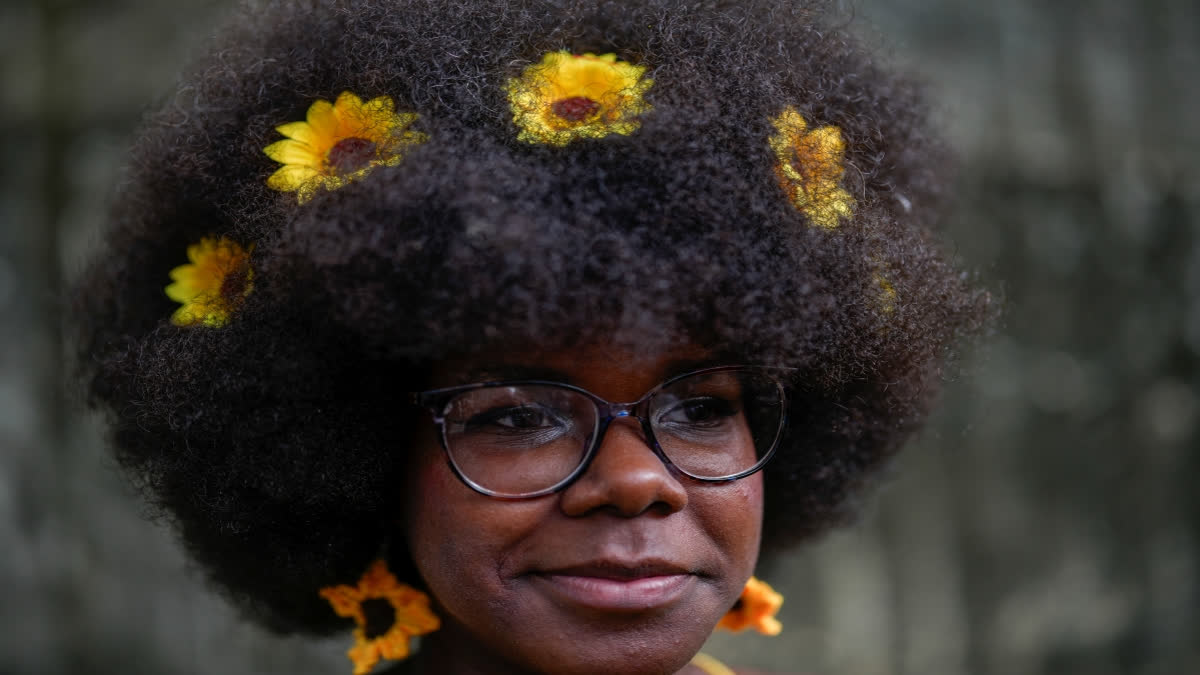Hyderabad: The World Afro Day is a global day of celebration and liberation for Afro hair and identity, endorsed by the UN Office of the High Commissioner for Human Rights. It is celebrated each year on the 15th of September.
Afro hair is not just hair, it carries the weight of history and culture. World Afro Day is a global day of celebration and liberation for Afro hair and identity. By recognising the historical and cultural significance of Afro-textured hair, this annual celebration empowers individuals to embrace their natural beauty and fosters a more inclusive society where everyone can be proud of their unique identity.
History of Afro Day
World Afro Day was founded by Michelle De Leo a British hairstylist in 2017. De Leon chose September 15th as the date for World Afro Day for a specific reason. On this day in 2016, the UK Parliament debated a petition calling for the acceptance of Afro hair in schools. This debate marked a significant step towards addressing the discrimination and biases that people with Afro-textured hair often face.
Bias against Afro-hair in society can create exclusion, shame and feelings of inferiority. This has also had a long-lasting impact on health and economic opportunity, especially for Black women, who are pressured to conform to societal norms.
Straight hair is considered the epitome of success and beauty and it is promoted everyday, through fairytales, films, television, social media, consumer products and advertising etc. Afro-hair is rarely celebrated, especially globally and World Afro Day seeks to change this.
Afro Definition & Meaning
The Afro is a hairstyle in which tightly curled hair is styled in a rounded shape. It became increasingly popular in the 1950s in America, which was a time when the beauty standard dictated that hair should be pin straight.
Michelle De Leon
Michelle De Leon is a British hairstylist and entrepreneur. Her motivation to create this special day arose from her personal experiences and the desire to address issues related to Afro hair. De Leon's vision was to promote self-acceptance, challenge stereotypes, and encourage positive conversations surrounding Afro-textured hair. She believes there aren't enough examples of natural Afro-textured hair being celebrated in adverts, movies and even in music. She wanted her daughter and other children around the world to grow up seeing more examples of people with hair like their own and for people without Afro hair to understand more about it.
The theme of World Afro Day 2024:
'Fix the Law, not our Hair'
The Origins of Afro hair
The roots of Afro hair can be traced back to Africa, where it has been celebrated for centuries. In African cultures, hair has held spiritual, cultural, and social significance. Elaborate hairstyles often convey one's age, marital status, social standing, and even their tribal affiliation.
During the transatlantic slave trade, millions of Africans were forcibly taken from their homelands to various parts of the world, including the Americas, Europe, and the Caribbean. This period marked the beginning of a complex relationship between Afro hair and oppression, as enslaved individuals were stripped of their cultural practices, including traditional hair care and styling.
During the Civil Rights Movement in the United States, natural Afro hairstyles emerged as a symbol of Black pride and resistance. Civil rights activists, such as Angela Davis and Stokely Carmichael, embraced their natural hair as a political statement. Despite its cultural significance, Afro-hair has faced discrimination and bias. Over the past couple of years, many Black people have embraced their natural hair as the Afro and natural hair movement has been popular. The celebration of Black hair is its ability to be diverse and worn in a range of beautiful styles such as locs, braids, weaves and wigs.
Famous People Who Rock With Afro Hair Styles
Solange Knowles
Solange Knowles is much more than Beyonce’s sister. She is a force in her own right. In 2016, her album; A Seat at the Table resonate with people of color. Solange Knowles wrote and sang extensively about what blackness meant in America, and the mix of experience and emotion that comes with it.
Gabrielle Union
Gabrielle Union is a great actress, best-selling author, and outspoken activist, supporting various causes; from ending violence against women to racial justice, health initiatives, eradicating poverty voting rights, and diversity.
Yara Shahidi
Yara is a role model for the younger generation. With 33 film credits to her name, Yara has won a Teen Choice Award for her first adult role, and remains an ever-rising star. After she turned 18, she launched We Vote Next; an organisation that encourages youth to get involved with civic engagement, vote, and speak their minds.
Viola Davis
Viola Davis is the only African American actress to win an Emmy for Outstanding Lead Actress in a Drama Series. She is also the only one to have won an Oscar, Tony and Emmy – all three. She was raised in poverty and was robbed of her childhood. Today, she uses her influence as an actress to lift people up. She is an advocate for the Rape Foundation, and works with different organisations to end childhood hunger.
Janelle Monae
Janelle Monae is known for more than her big singing voice. She is equally renowned for her signature pompadour hairstyle. She began performing ass a child, and got her first break in 2005.



